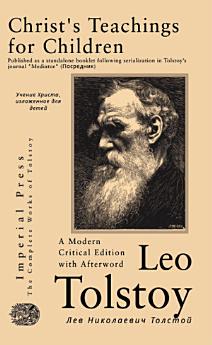Christ's Teachings for Children
About this ebook
"Christ's Teachings for Children," or "Учение Христа, изложенное для детей" in Russian, was published in 1911 as its third edition, with a preface written by Tolstoy in 1908. This composition presents the meaning of Christ's teaching and the events of His life in a form accessible to children, drawing upon evangelical texts. The work aims to help children grasp the truths of Christianity, accompanied by questions designed to aid their comprehension. This work aligns with Tolstoy's broader engagement with religious questions from the late 1870s, reflecting his commitment to simplifying and disseminating Christian moral principles, particularly for the education of the young. It is sometimes known by the German title "Die Christliche Lehre".
The central tenet conveyed is that the divine spirit, which is love, resides within every human being, and that human suffering arises from prioritizing the physical body over this spiritual essence. The text posits that if individuals were to ground their lives in this divine spirit of love, enmity, emotional torment, and the fear of death would cease to exist. This composition, therefore, stands as a clear articulation of Tolstoy's later spiritual convictions, tailored for the moral development of the young, seeking to instill a worldview centered on inner spiritual values rather than external dogma.
This critical reader's edition presents a modern translation of the original manuscript, crafted for the modern reader with clean, contemporary language and simplified sentence structures that clarify his complex Russian phrasing and specific antiquated references. Supplementary material enriches the text with autobiographical, historical, and linguistic context, including an afterword by the translator on Tolstoy’s personal history, impact, and intellectual legacy, an index of the philosophical concepts he employs—emphasizing Existentialism and influence by Schopenhauer—a comprehensive chronological list of his published writings, and a detailed timeline of his life, highlighting the personal relationships that shaped his philosophy.











